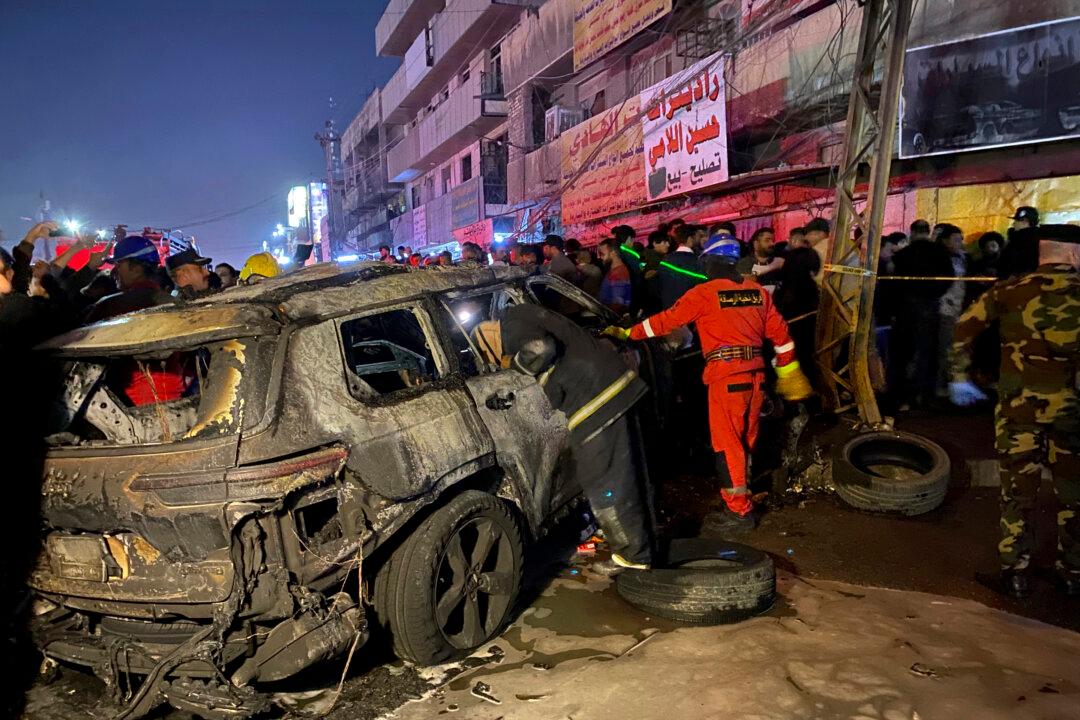Calls continue to mount in Iraq for the departure of a U.S.-led coalition following a U.S. strike that killed a Shiite militia commander in Baghdad.
On Feb. 8, Iraqi army spokesman Yahya Rasool warned that the U.S.-led coalition had become “a factor for instability [that] threatens to entangle Iraq in the cycle of conflict.” One day earlier, the U.S. military carried out what it described as a “unilateral strike” on targets in eastern Baghdad.





